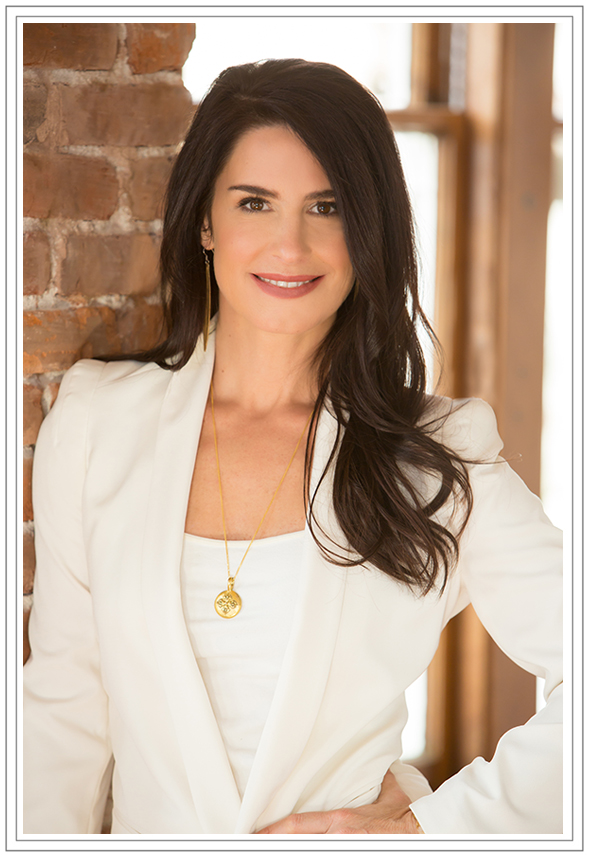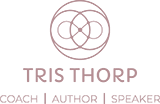
Hey there, friend—
This week I’m shining a light on short-cutting and how it can be detrimental to our happiness, our relationships, and our ability to live a fulfilled life.
Short-cutting is taking the easy way out or avoiding necessary efforts to achieve our goals or fulfill our responsibilities, which can (and usually does) lead to negative consequences in our lives.
We learn short-cutting early on in life when we’re too impatient to wait our turn so we “take cuts”. Then this becomes our adult strategy for getting there faster, eliminating the competition, and avoiding doing our inner work.
We’re living in a world that, for many, feels as though it’s spinning out of control. It’s the topic of real talk conversations at the dinner table, happy hour, and family get-togethers.
“Things are crazy out there”. “Life is happening so fast.” “I can’t keep up.” “I’m so exhausted.” “The world is so f’d up.” “I feel so disconnected.”
Life is always happening. It’s the substratum of our existence that “just is.” How we are choosing to live our lives is something that we have full agency over.
If we’re letting life live us, then we’re going to be swept up by the crazy and chaotic energies of whatever is happening around us. That’s living from low self-worth, victim, and scarcity mentality.
When this happens, we’re stuck inside the matrix where we lack general awareness, are unable to see possibility, and give in to a life of self-perpetuated repetition.
A person living from this space is prone to short-cutting because they’re overworked, over-stimulated, overwhelmed, and over-stressed. They just want the quick fix—something to make it all better.
Living a life of health, harmony and happiness requires us to create health, to create harmony, to create happiness. These outcomes don’t just show up when you cut to the front of the line. They require constant awareness, attention, intention, and conscious right action.
The problem we’re facing today is that many people don’t want to put in the time, the energy, the effort, and the resources to acquire the inner strength, alignment, and sense of purpose that we’re seeking.
We want the cheapest, fastest, easiest solution so that we can go on with our crazy busy, hectic, chaotic lives that we’re so committed to living, day after day.
This approach does not work.
The truth is…
Short-cutters are incapable of authenticity because they don’t know how to be alone with themselves, therefore the version they present isn’t the truth of who they are.
Short-cutters run avoidance tactics, tell untruths and cheat in all areas of their lives because they’re unwilling to face their core wounds and do their inner work.
Short-cutters aren’t able to grow and evolve because they believe they’re exempt from the rules of nature and of society, and they can get ahead faster by shortening the distance.
You’re never going to arrive at that feeling or place or experience that you’re working so hard for if you’re not willing to put in the time and effort to do your inner work.
The problem isn’t “out there”. The problem is an inner conflict that is begging for your attention, and it speaks to you through overwhelm, exhaustion, maladjustment, and negative outcomes that you blame on “life”.
The invitation here is to slow down and learn to be with yourself, to sit with the discomfort that’s arising inside, to be curious about why you run the patterns you do, to recognize where healing and growth is needed from within, and to apply yourself accordingly.
Avoiding shortcuts in emotional healing and personal growth is essential for becoming the best version of yourself.
- Practice self-compassion: Be kind and understanding toward yourself, especially during challenging times. Acknowledge your emotions without judgment and give yourself the space to heal and grow.
- Identify and process your emotions: Take time to identify and understand your emotions. Allow yourself to feel and express them in healthy ways, such as through journaling, talking to a trusted friend, or seeking professional support.
- Practice mindfulness and meditation: Engage in mindfulness practices to stay present and aware of your thoughts and emotions. Meditation can help you develop emotional resilience and inner peace.
- Let go of past hurts: Work on forgiving yourself and others for past mistakes and traumas. Holding onto grudges will hinder your emotional healing and personal growth.
- Set and enforce healthy boundaries: Learn to say no to situations or people that drain your emotional energy. Setting boundaries protects your well-being and fosters healthier relationships across the board.
- Surround yourself with supportive people: Surround yourself with those who uplift and inspire you. Positive relationships can accelerate your emotional healing and personal growth journey.
- Embrace vulnerability: Open up to people you trust about your feelings and experiences. Sharing your vulnerabilities fosters deeper connections and helps you live more fully into your authentic self.
- Engage in self-reflection: Take time to reflect on your experiences and patterns. Self-reflection amplifies self-awareness and allows you to identify areas that need healing and growth. This is where the gold is at!
- Embrace change and adaptability: Be open to change as a natural part of life. Embracing change and being adaptable teaches you to go with the flow and adjust accordingly.
Remember that emotional healing and personal growth are ongoing processes and there is no short cut to getting there.
Be patient and gentle with yourself, as it may take time to experience significant changes.
I promise you will feel so much more congruent, confident, and fulfilled in your life when you take the time to walk your path intentionally—with truth, integrity, and grace.
Always Be Rising,


An International Bestselling Author, Lifestyle and Leadership Coach and speaker, Tris Thorp is one of today’s leading experts in the field of personal growth and leadership development, specializing in emotional healing, women’s empowerment and shadow work.
Having spent a decade traveling the world, being trained by and sharing the stage with Dr. Deepak Chopra in the field of social emotional learning, consciousness and mindfulness-based practices, Tris has a real gift for integrating the ancient spiritual teachings with modern-day science and mindfulness to help people all over the world let go of their past and create an empowered new future.
During her tenure at the Chopra Center, Tris apprenticed under the Chopra Center’s co-founder Dr. David Simon, co-facilitating the Healing the Heart and Emotional Freedom workshops alongside him. Prior to his passing in 2012, Dr. Simon appointed Tris as the person to carry on his teachings in the field of emotional healing. In addition, Tris was fortunate to be mentored by the late Debbie Ford prior to her passing in 2013, which is where she continued her extensive studies of the unconscious mind and concepts of the persona and shadow. After the loss of her two mentors, Tris went on to become certified through the Ford Institute as a coach specializing in Shadow Work and reconciling mental and emotional issues stemming from past experiences. She continues to share the gifts of emotional healing and facilitating this work in the footsteps of her former mentors.
Tris is the International bestselling author of Healing Your Heart: Rewrite Your Story with Awareness and Intention. A guide book to understanding your emotions, how we create our story and workable tools and techniques to heal from the past, Healing Your Heart stewards you through the process of releasing mental and emotional baggage, forgiving yourself and others, setting and enforcing boundaries and consciously communicating your needs in a loving and effective way so you can be who you’re meant to be, do the things you want to do and have all that you deserve to have in this life.
Tris is also the co-author of bestseller Mental and Emotional Release® with Dr. Matt James. Written in a language both professionals and non-professionals can understand, Mental and Emotional Release® offers real life case studies, an overview of MER and its foundation, step by step scripts to follow, and clinical efficacy studies comparing MER to other therapies.
Clearly in her dharma, Tris’s passion and dedication to gently guide people on their inward journey through personal growth is evident in her work as a Lifestyle and Leadership coach, Trainer of Mental and Emotional Release and workshop facilitator. She teaches various courses on leadership development, personal empowerment, social emotional learning and higher states of consciousness – both in online courses and her certification programs, live workshops, VIP retreats and 1-1 clients.
Tris Thorp is Board Certified by the Association of Integrative Psychology as a Trainer of Mental and Emotional Release ®, Master Practitioner of Neuro Linguistic Programming, Hypnosis, and Mental and Emotional Release ®, a Certified Reiki Master, and an Experienced Registered Yoga Teacher with Yoga Alliance.
Tris is devoted to inspiring and empowering others to cultivate and maintain mindfulness-based lifestyle practices that lead to greater clarity, purpose and fulfillment. Through one-on-one coaching, online programs and live events, Tris specializes in helping people to fully release negative emotions, limiting beliefs and unconscious patterns, enabling them to make quantum leaps into the life they are truly meant to be living.
